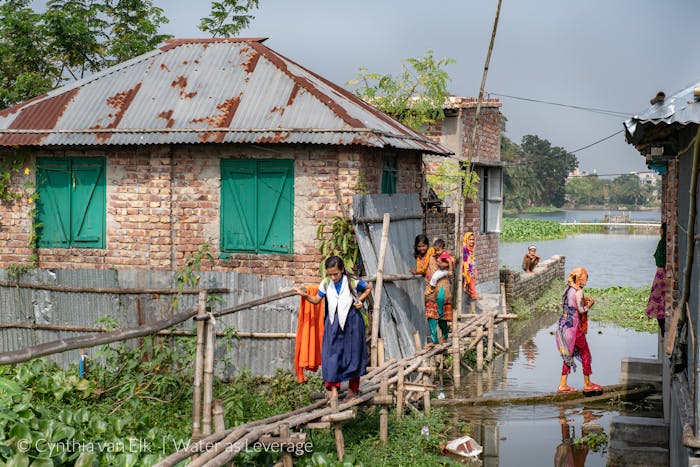Design workshops were an integral compnent of the nine-month collaborative, comprehensive and competitive WaL process.
The aim of these working sessions, presentations, knowledge sharing and networking was to generate suggestions, opinions and ideas for next steps to transform the teams’ approaches into more concrete conceptual designs to address the cities' unique water challenges. Teams also interacted with local stakeholders and collect sources to further shape these conceptual designs. Ultimately, the goal was to facilitate the developement of ground-breaking proposals and turn these into projects that strengthen structural and cultural resilience.
Workshops were separated into two phases, as follows:
Phase I: Research and Analysis for the Development of Conceptual Designs Workshops included:
Local workshops 1st round, September-October 2018
The first round of local design workshops in Chennai, Khulna and Semarang, took off to a flying start. Design teams in all 3 locations worked together and informed stakeholders about the innovative and transformative character of the Water as Leverage programme.
Local workshops - 2nd round, November-December 2018
During the second round of local workshops in November and December 2018, the conceptual designs for each city were presented, discussed, verified, and explained. Later, the teams met in Singapore for the first Regional Workshop to discuss the challenge of connecting proposals with financial initiatives from development banks.
Regional workshop - 1st round, December 2018
The Singapore Regional Workshop marked the end of the first phase of the programme with the presentation of conceptual designs for each city. Key connections were established, lessons learned, and knowledge was shared in a collaborative spirit, enabling further progress to be made in these non-standard, large-scale, transformative projects.
Phase II: Development of Proposals for Urban Water Project Workshops included:
Local workshops, 3rd round March 2019
With the goal of channelling their knowledge and focusing on implementation, the six multi-disciplinary teams met in the respective cities in March, together with international and local experts. The workshops were well attended, and all parties were committed to seeing the process through. This alignment was crucial to the next phase, in Singapore, whereby the feasibility and implementation steps would be defined.
Regional workshop - 2nd round April 2019
In March, all parties came together in Singapore to wrap up the first phase and to define the next steps. There is now a roadmap defined for each of the three cities, including aspects such as enabling environment, to help ensure that the programme’s comprehensive approach stays in place. Next steps have been identified as to who does what, how it is organized, and when the results can be delivered, for further replication and scaling-up.

 03 Good Health and Well-being
03 Good Health and Well-being
 06 Clean Water and Sanitation
06 Clean Water and Sanitation
 09 Industry, Innovation and Infrastructure
09 Industry, Innovation and Infrastructure
 11 Sustainable Cities and Communities
11 Sustainable Cities and Communities
 13 Climate Action
13 Climate Action
 14 Life Below Water
14 Life Below Water
 15 Life On Land
15 Life On Land
 12 Responsible Consumption and Production
12 Responsible Consumption and Production
 17 Partnerships for the Goals
17 Partnerships for the Goals